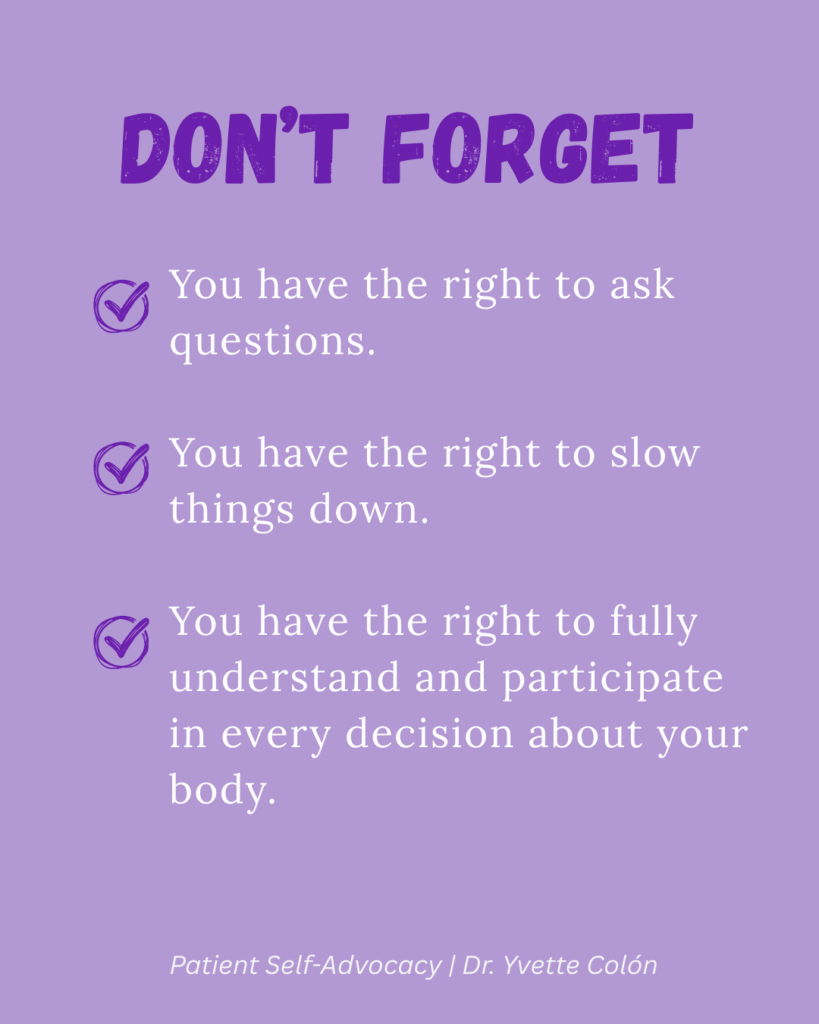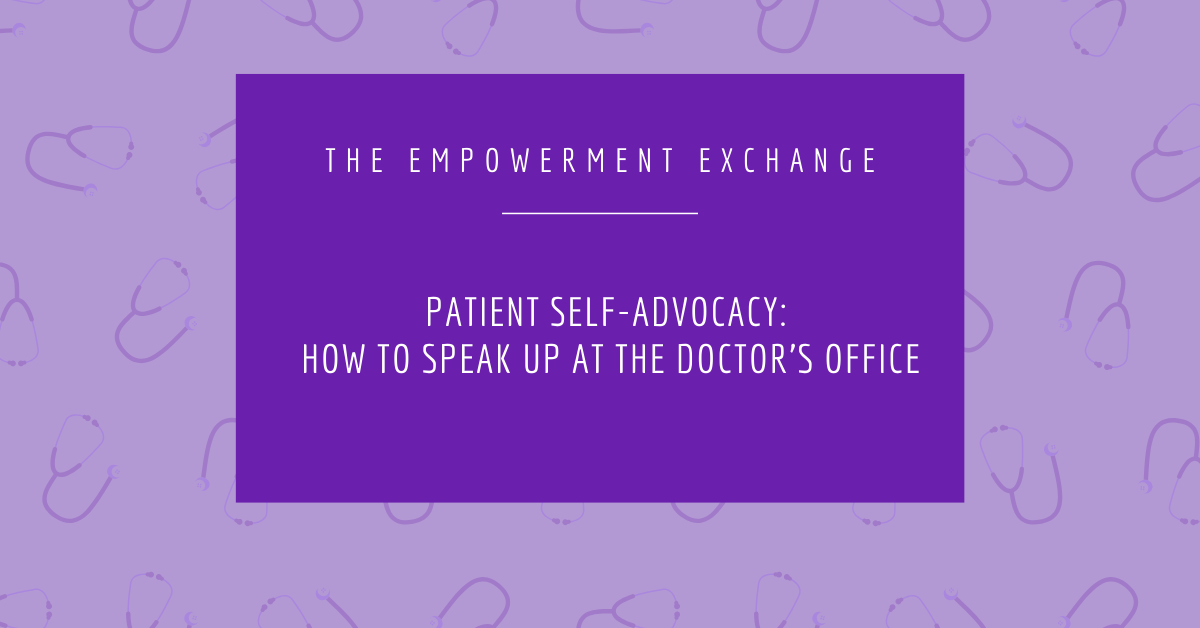Patient self-advocacy can feel overwhelming, almost like stepping into a courtroom drama where you’re suddenly on trial.
Even with a doctoral degree and access to medical professionals in my circle, I don’t feel comfortable walking into a doctor’s appointment unprepared.
I research. I prepare. I write things down. And still, I have to remind myself:
“You have the right to be involved in your care.”
– Dr. Yvette Colón
Not everyone has access to medical information or a strong support system. But you can still advocate for yourself.
I share more about my own journey as a survivor and advocate on my About Page
Here are 4 strategies that have helped me, and I hope they help you too.
1. Mentally Prepare to Be Challenged
It is unfortunate, but some healthcare providers do not like being questioned.
In fact, research published by the National Institutes of Health shows that patients who speak up often encounter defensive or dismissive responses.
Asking questions is not confrontation. It is your way of participating in your care decisions.
Be ready for pushback, but do not let a provider’s reaction silence you.
You are not being rude. You are protecting yourself and your health.
I’ve gathered advocacy resources that can help you prepare for moments like these.

2. You Know Your Body Better Than Anyone
Even if you do not have the medical vocabulary, you know what you feel.
That is important.
Describe your symptoms clearly and in your own words.
You can use comparisons such as “it feels like,” or time references such as “it happens after,” to give your provider a fuller picture.
Do not let facial expressions or tone of voice throw you off. Keep going.
If you want help keeping track of your health, the Wave Health app helps you track symptoms alongside sleep, treatments, and overall wellness so you can share a fuller picture with your care team.
3. Bring Notes and a Support Person If You Can
Treat your appointment like an important meeting, because it is.
Write down your symptoms, questions, medications, and concerns.
Bring a notepad or use your phone.
If you can, take someone with you. A partner, friend, or relative can be your note-taker, provide emotional support, and even speak up for you if your voice shakes.
You should never feel like you are walking into that room alone.
The Mayo Clinic recommends bringing written notes and a support person as one of the most effective ways to make sure you leave your appointment with the answers you need.
I often talk about patient empowerment in my speaking engagements, because support is one of the most powerful tools you can bring with you.
4. Push Back When Something Feels Wrong
You are not there to argue with your healthcare providers.
You are there to make sure your voice is heard as part of the team.
If something feels off, whether it is a diagnosis, a treatment plan, or a dismissive response, pause and ask questions.
Here are a few examples:
- “Are there other treatment options available?”
- “Can you explain the risks and benefits of each?”
- “I have read about [X]. Is that something we can consider?”
A Real Example: The Option That Wasn’t Offered
A friend of mine went to see an oncologist for a third opinion on a rare cancer.
She wanted to pursue Immunotherapy as a first-line treatment.
The oncologist instead described a chemotherapy and radiation plan.
She pressed again: “Immunotherapy has been approved as a first-line option for this type of cancer. I want to start with that.”
Only then did the oncologist admit, “Yes, I can get that approved, but I still think chemo is the way to go.”
Here is the problem: the immunotherapy had been FDA-approved three years earlier, yet it was not even offered until she asked for it.
Doctors are human. They have habits, biases, and preferred protocols.
But when they fail to present all the options, they take away your right to make an informed decision.
That is not acceptable.

You Deserve to Be Involved
The healthcare system is far from perfect, but you still have power.

Doctors have medical knowledge. But you have a voice, and it matters.
Speak up. Take notes. Ask questions. Bring support. You are allowed to be part of your own care. Do not let anyone make you feel otherwise.
For more reflections and tools on advocacy, explore my blog or return to my home page to learn more about my mission.
If you’d like to see how these strategies play out in real life, I’ve shared my own story in When the Doctor Doesn’t Believe You: A Personal Story of Medical Dismissal. Click below to read it.
Don’t Miss Out!
To get future posts on survivorship and advocacy delivered straight to your inbox, subscribe to my blog today.
Discover more from Dr. Yvette Colón
Subscribe to get the latest posts sent to your email.







2 Comments